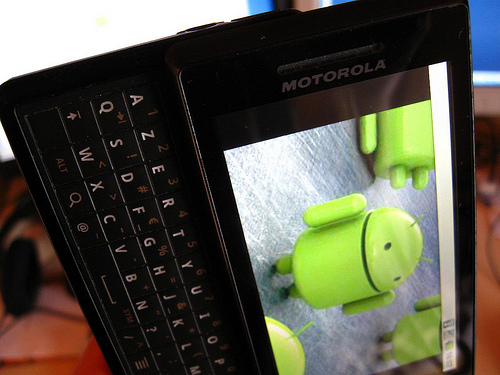Six reasons why Google-Motorola works

summary Google's purchase of Motorola Mobility solves the search giant's patent problems, gives it a bigger say in hardware integration and fixes a few other issues. Here's a look at the moving parts.

(milestone image by n3wjack, CC BY-SA 2.0)
Google aims to fix multiple lingering wireless issues with its US$12.5 billion purchase of Motorola Mobility, and, overall, the deal is just crazy enough to work.
On a conference call with analysts, Google CEO Larry Page outlined the rationale for the deal. In a nutshell, Page is betting on mobility as the future of computing (Google statement; blog), but even with the grand themes of software-hardware integration and better user experiences, Google's purchase of Motorola Mobility cures a lot of ills for the search giant.
Page said, regarding Motorola:
I think they have an exciting product roadmap, a strong vision for the future and are poised for growth. I think there's an opportunity to accelerate innovation in the home business by working together with the cable and telco industry as we go through a transition to internet protocol. Motorola also has a strong patent portfolio which will help protect Android from anti-competitive threats from Microsoft, Apple and other companies. Many hardware partners have contributed to Android's success, and we look forward to continuing our work with all of them on an equal basis to deliver outstanding user experiences. We built Android as an open-source platform, and it will stay that way.
Can this marriage work? Here's a look at the ledger, and six reasons why the Google-Motorola deal makes sense:
- Integration may be all that matters in the wireless industry.
Apple's hardware-software-ecosystem business model brings better profit margins, can grab market share and seems to delight consumers. Google's Android effort could be a bit like herding cats. The larger question is whether the vertically integrated model is the only one that works in the wireless industry.
- Google lands its patent treasure trove.
If you consider that Google was going to pay nearly US$4 billion for Nortel's 6000 wireless patents, US$12.5 billion for Motorola Mobility doesn't look like a big chunk of change. With Motorola Mobility's patents, Google can fend off lawsuits. In other words, Google builds out its patent portfolio. On a conference call, Page called out patents as a big reason for the Motorola Mobility acquisition.
- Google gets a TV play.
While Google's Motorola acquisition primarily revolves around wireless devices, there's a significant living room play here. Why? Motorola Mobility has a significant set-top box business. In the cable box world, there are two players: Cisco and Motorola Mobility, which is the leader. Google will get significant relationships with cable providers, which will give Android more of a foothold.
- There's a good chance that Google can keep hardware partners in the fold — for now.
Page reiterated that Google will keep Android open source, and work with partners such as HTC and Samsung. Also keep in mind that this Google-Motorola deal could win it some goodwill with hardware partners. Motorola was thinking about suing other Android hardware makers over patents. Google's acquisition would put an end to that.
- The deal forces Microsoft's hand.
When it comes to the art of war, Google and Motorola force Microsoft's hand; with the Google-Motorola deal, Page is basically acknowledging that there's no money in third-party operating systems in the mobile space. The upshot: Mobile software players need a hardware component. As a result, Microsoft may be forced to acquire a hardware player. Research In Motion (RIM) and Nokia are prime takeover candidates. In any case, Microsoft will be distracted by a big acquisition.
- Android boxes in Nokia and RIM.
With Motorola, which has some enterprise credibility and Android innovations, Google can enter the enterprise easier. As a result, RIM increasingly looks like the odd man out. Nokia is already under fire as it waits for Windows Phone 7 to gain traction. RIM is betting on QNX as an operating system. Google is indicating that the wireless market is a two-platform race, and that those two horses are going to be Android and iOS.
Via ZDNet US